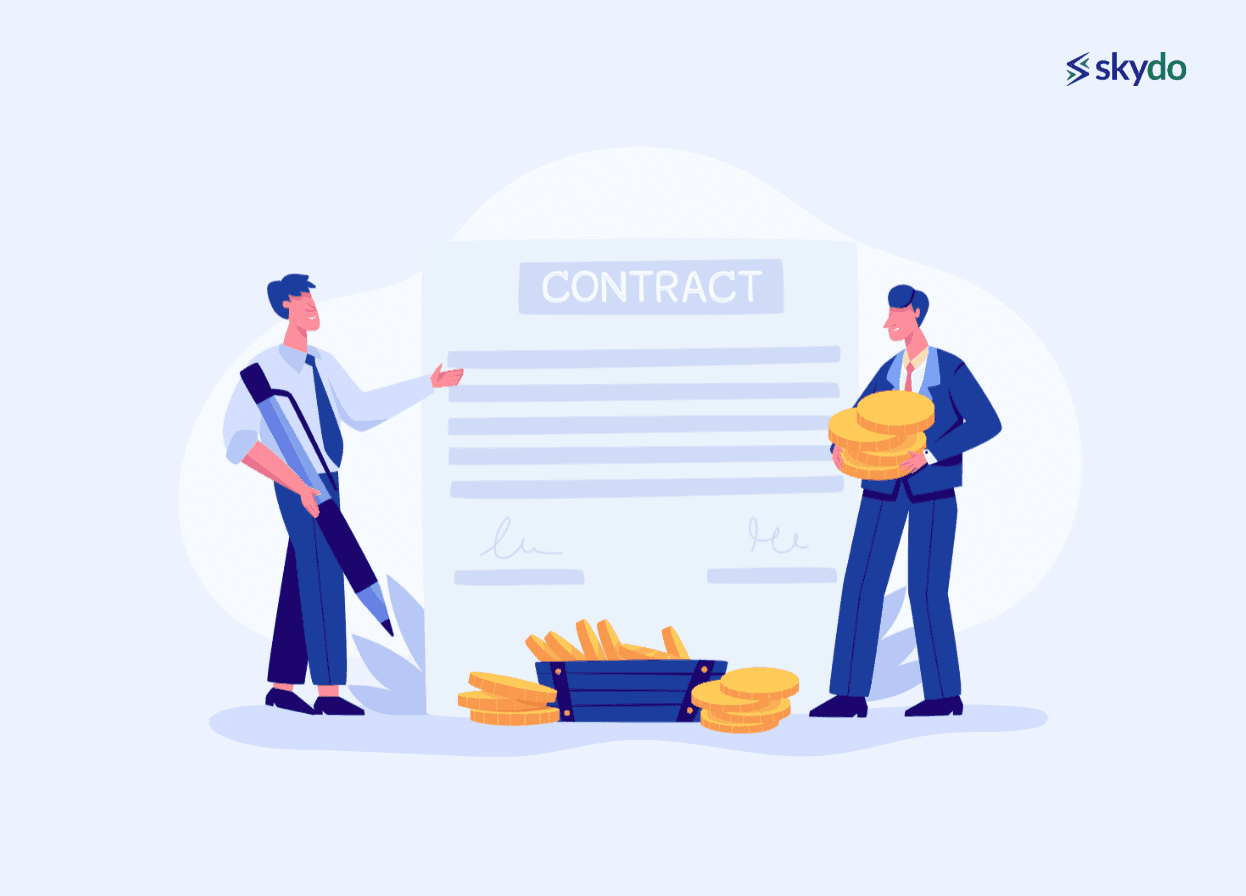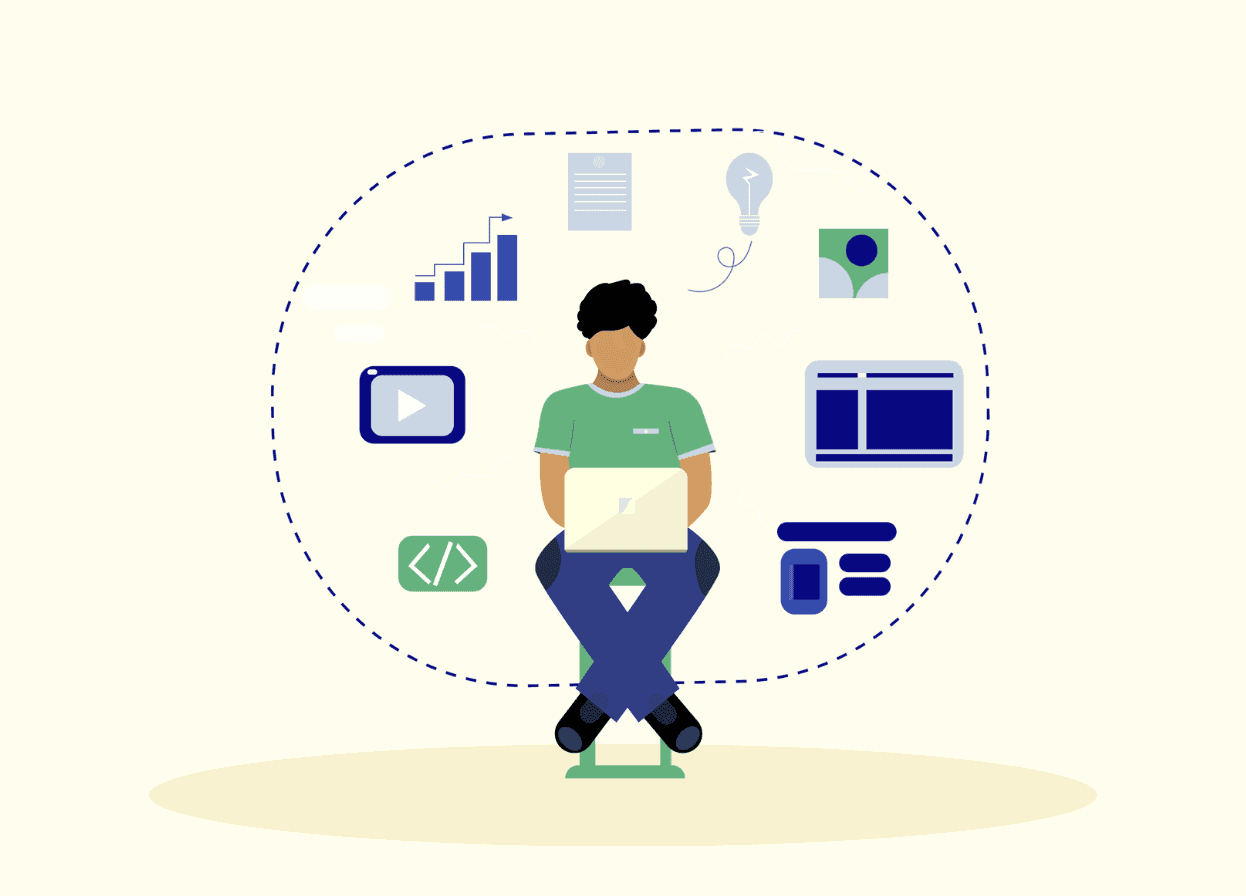10 Red Flags and Warning Signs of Freelancer Scams

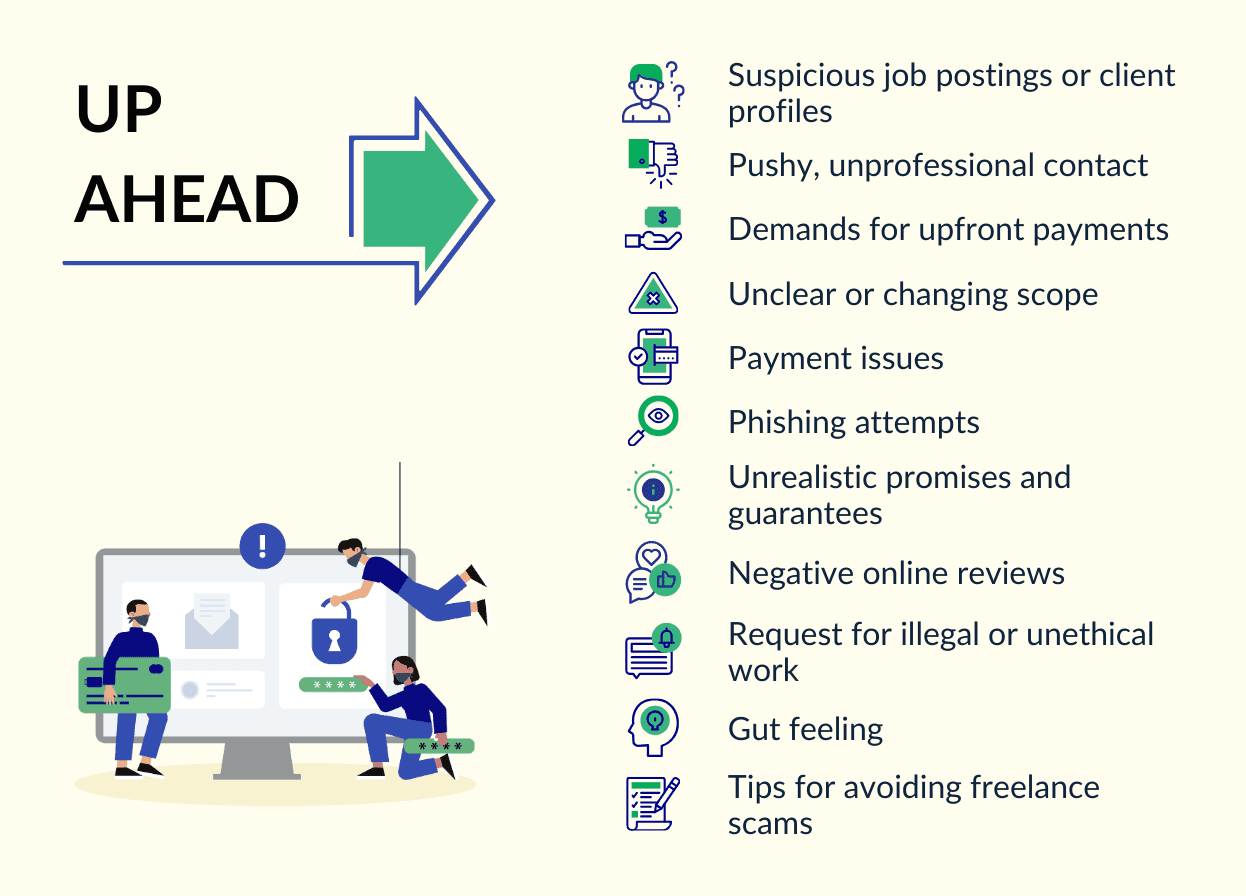

The rise of freelance opportunities has led to a surge in freelancer scams. Several fraudulent activities in the gig economy may drain your time, efforts, and hard-earned money. These freelance scams make it tough to land a genuine gig and can exploit you if you are not careful.
To avoid them, you must stay vigilant and learn how to spot them.
Before accepting your next freelance project, watch out for these 10 common red flags and warnings.
Here are ten common red flags and warning signs of freelance scams and how to avoid them.
1. Suspicious job postings or client profiles
Incomplete or vague project descriptions are common red flags these days. Not only are they suspicious, but also indicative of poor project quality. These postings may pay either too much or below-market rates. Such clients often post a project multiple times and are likely to have fake and unverified profiles.
A common example is those 'work-from-home' jobs requiring no skills or screening tests. They may seem attractive but invite many risks. It's always better to steer clear of such unclear roles.
2. Pushy, unprofessional contact
Before starting any project, any legitimate client would want to evaluate a freelancer's skills. If a client shows excessive urgency to start a project without clear agreements, be cautious.
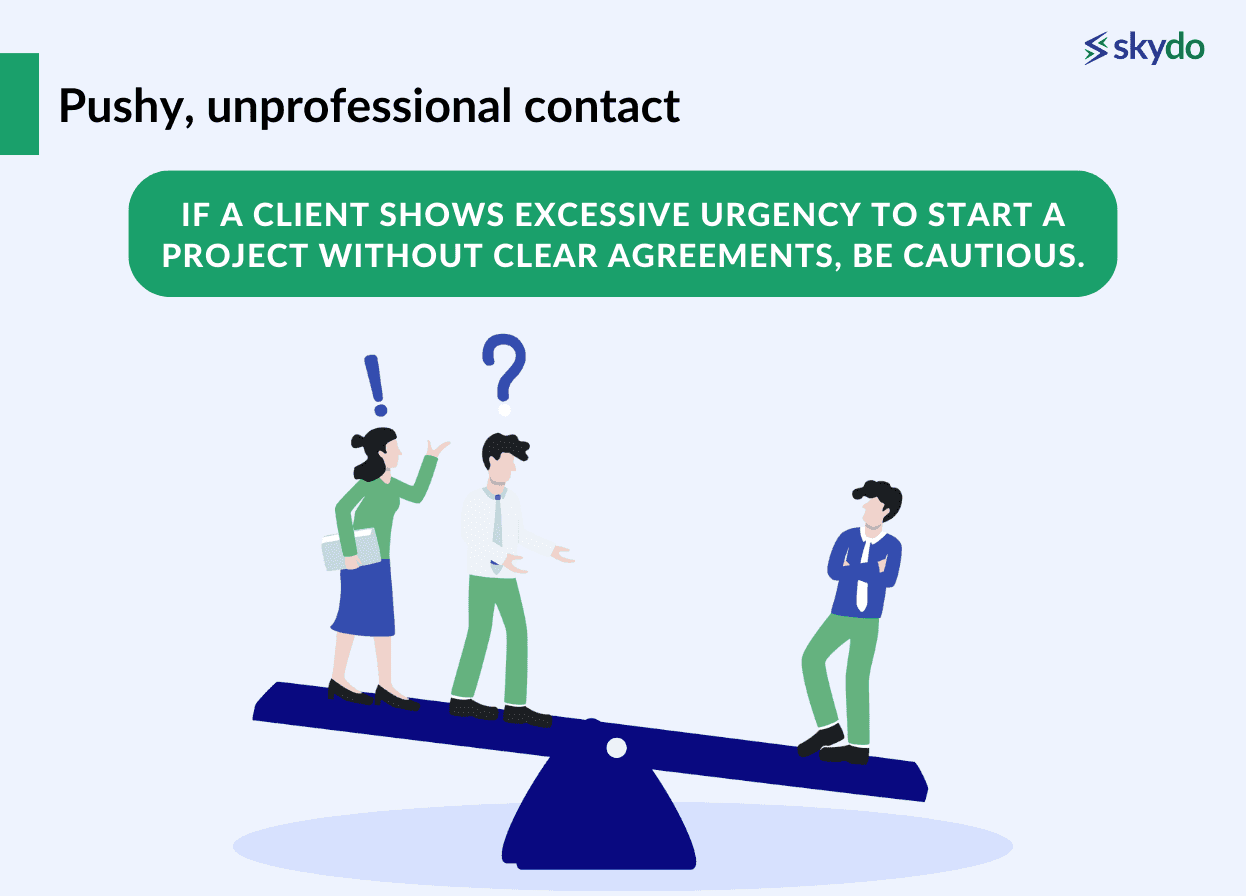
Scammers often rush and use personal communication channels like WhatsApp, Skype, or email. They may say it's more convenient. However, this convenience compromises your security.
Official chat systems help protect both you and the client from potential abuse. Strictly adhere to official platforms so you can get support if needed.
If you aren’t using a freelance platform, use a separate business email and phone number.
3. Demands for upfront payments
You shouldn't have to pay to get paid!
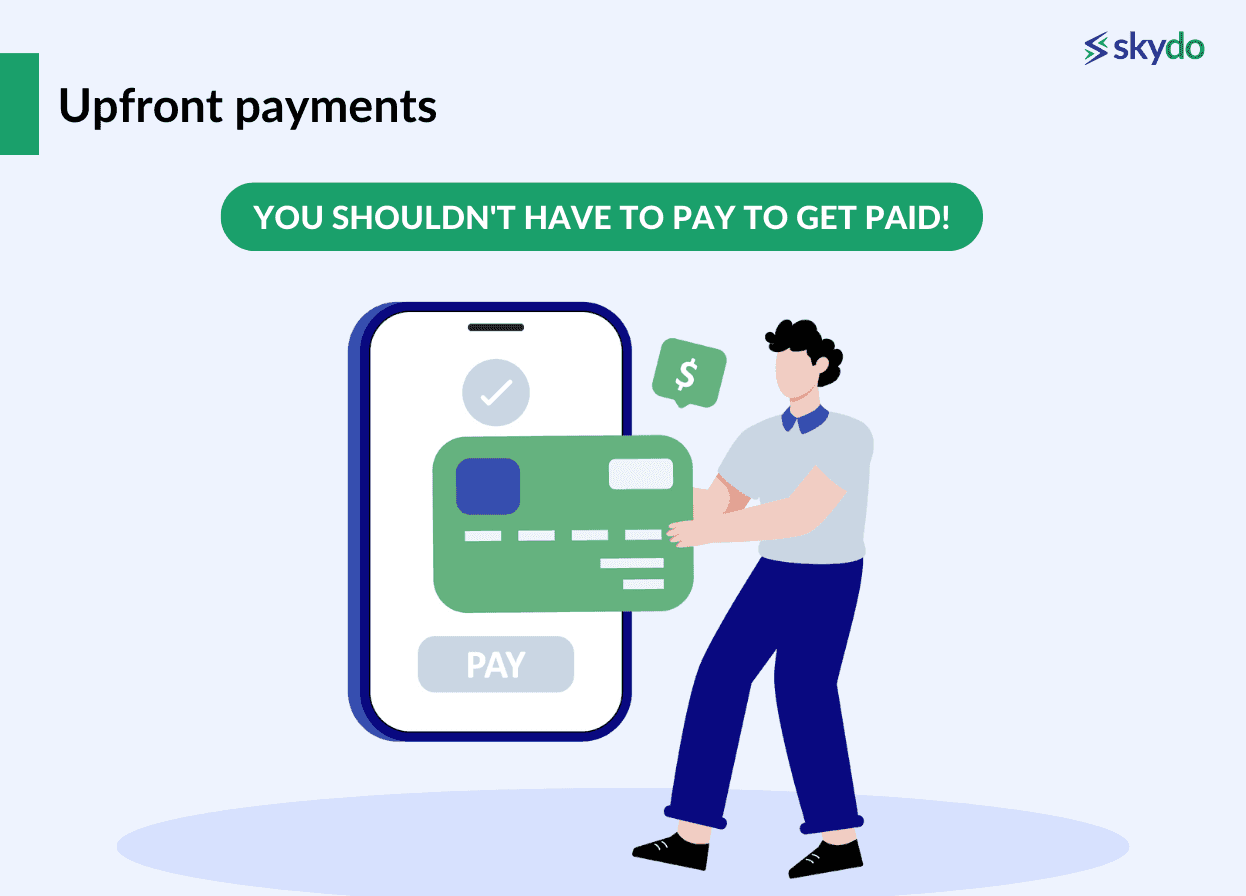
Scammers may ask you to pay for a tool, training, registration, or deposit security before the project begins. Whatever the reason, do not make any upfront payment. It only makes sense that all the necessary resources are accessible to you. Say no, stay safe.
4. Unclear or changing scope
Transparency is key to any successful project. Constant revisions, additions, and changing timelines are unfair practices. Clients may request free assignments or add new tasks to exploit your time and efforts.
It is understandable for a client to request a small assignment to assess your skills. However, this should happen before the start of the project.
In some cases, it is also understandable to make some revisions during the project. However, too many requests are fishy and unjust. Documenting the scope and goalposts of your project in your agreement is a good practice to avoid such situations.
5. Payment issues
Unofficial means of payment and communication are clear red flags. All transactions should happen via your freelancer platform or trusted platforms like PayPal, Skydo, or Stripe. If your client shares vague payment terms or requests for alternate payment methods, simply refuse.
Additionally, vanishing clients at the time of payments is not new. Payment delays, excuses, and confusion are unfortunately common. Include payment timelines in your contract. Consider asking for upfront payment or setting milestones to ensure your efforts don’t go in vain.
The fake cheque scam is another example. The scammer emails you a poorly photoshopped image of a fraudulent check that is likely much more than they owe you. Then they come back to you and say, "Oops! We paid you too much! Send some back, would you?"
If you agree to it, the amount is deducted more than the amount transferred to you, leading to unnecessary losses. Therefore, carefully check all payment information beforehand.
6. Phishing attempts
Freelancer scammers may request your personal information like bank account details, address, tax info, UpWork credentials, etc. Some scammers may propose to help you grow on freelance platforms and ask for your credentials.
Do not entertain such proposals, and never disclose your credentials.
They may also produce fake payment invoices or share malware links to receive payments. If you click on such URLs, immediately call your bank, change your passwords, and run an antivirus scan.
7. Unrealistic promises and guarantees
The classic trap! These 'too good to be true' jobs offer great pay for minimal effort. To add to this, scammers may lure freelancers with exclusive or limited-time opportunities.
Always research industry rates for similar projects and ask for more details if a client offers an unusual rate. Don't rush!
Scammers may even push you to join pyramid schemes or invest in non-existent projects. This short and easy path to riches is also the riskiest of all.
8. Negative online reviews
Suspicious digital presence and incomplete contact information are alerts you should never ignore. You may find inconsistencies in their profiles or even big claims without proof.
As a standard practice, thoroughly research potential clients before committing to any work. Check their reviews on freelance platforms and forums. Do a quick Google search, such as “[site name] reviews”. Found negative reviews or an unverified profile? Walk away!
9. Request for illegal or unethical work
These include projects involving plagiarism, copyright infringement, or fraud. Clients may ask you to produce unethical work promoting hate speech or misformation. It is against the law, and you risk losing your reputation, income, and freedom.
It is inappropriate for a client to pressure you into activities that don't feel right. You should not have to go against your moral values for any gig.
10. Gut feeling
The one that does not lie! If a job or client appears too good to be true, trust your instincts—it probably is. It's safer to trust your instinct and say no instead of taking big risks. Value your efforts, skills, and time. Only say yes if it feels right.
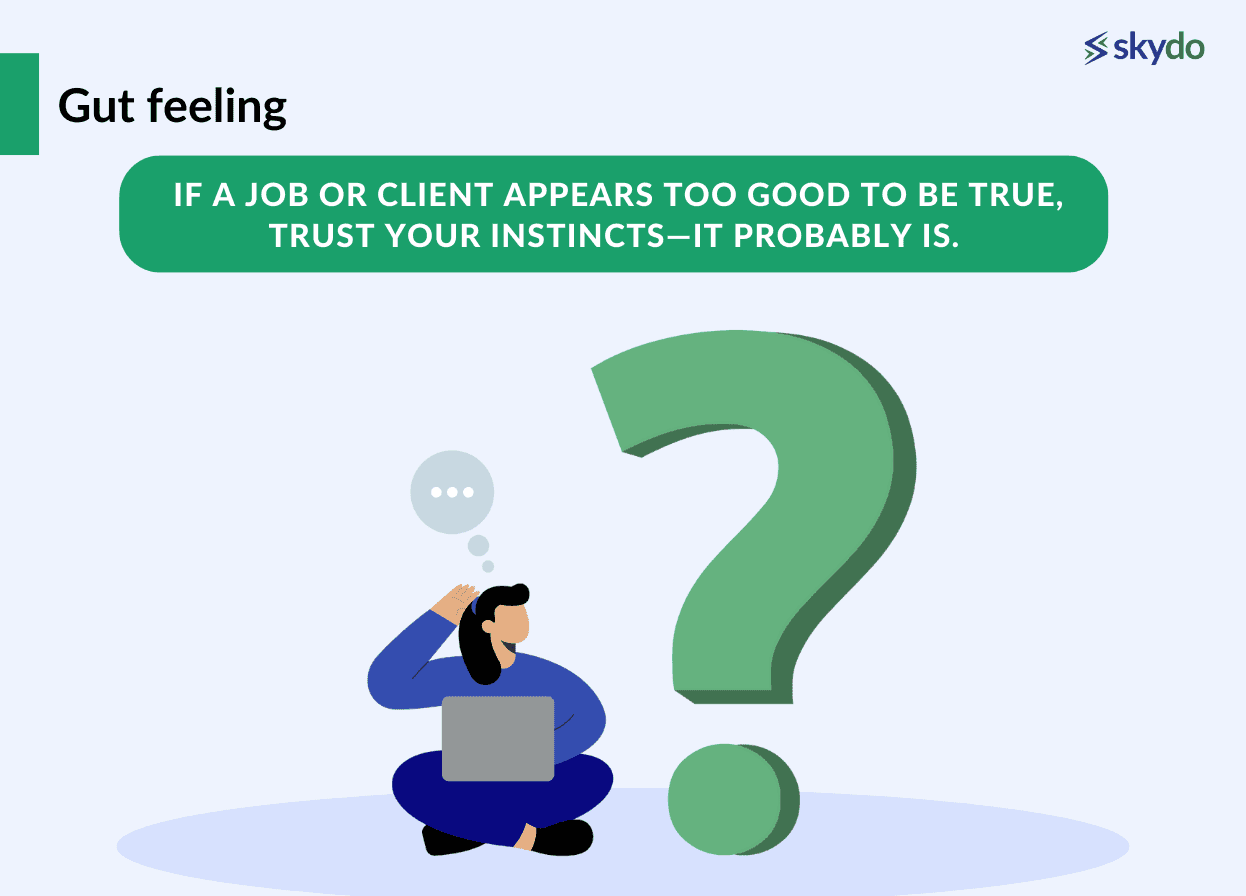
Tips for avoiding freelance scams
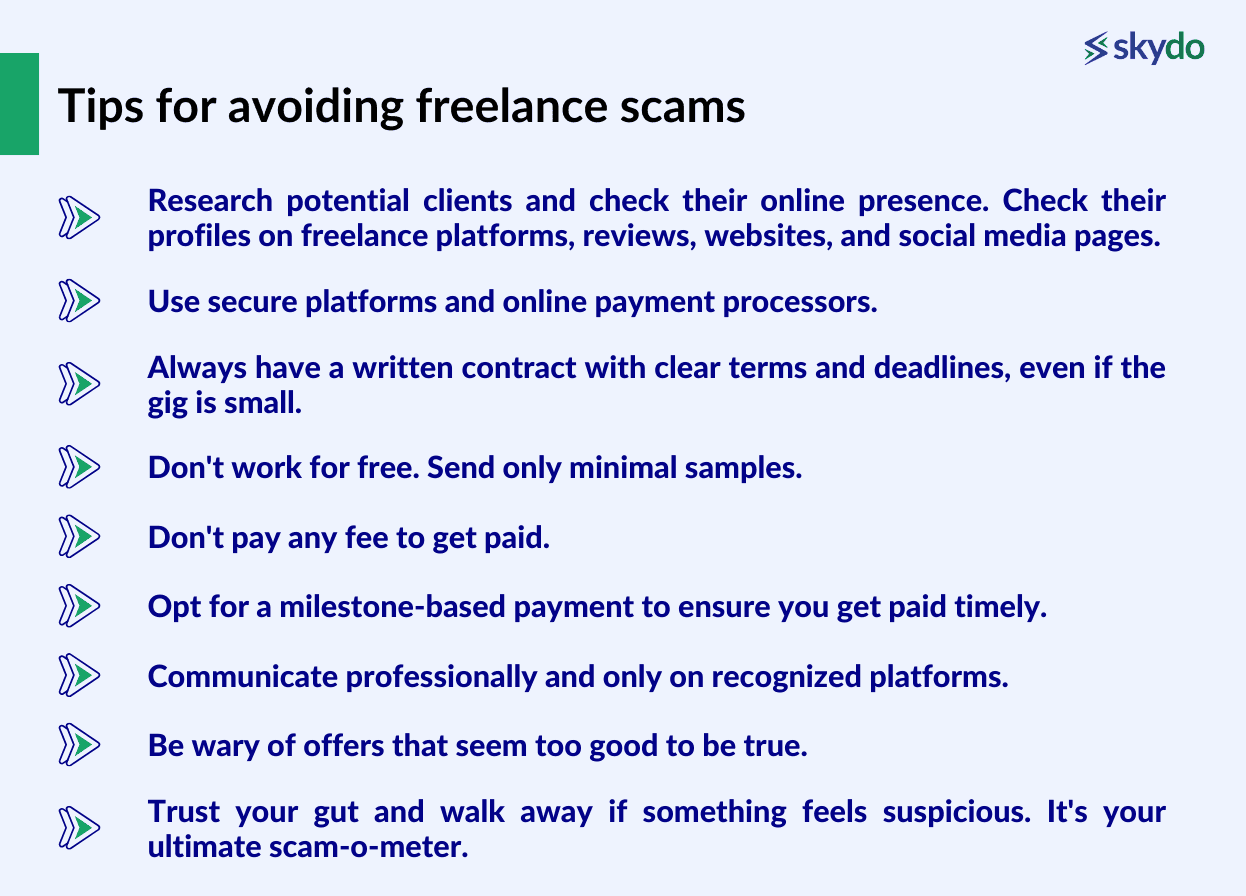
- Research potential clients and check their online presence. Check their profiles on freelance platforms, reviews, websites, and social media pages.
- Use secure platforms and online payment processors.
- Always have a written contract with clear terms and deadlines, even if the gig is small.
- Don't work for free. Send only minimal samples.
- Don't pay any fee to get paid.
- Opt for a milestone-based payment to ensure you get paid timely.
- Communicate professionally and only on recognized platforms.
- Be wary of offers that seem too good to be true.
- Trust your gut and walk away if something feels suspicious. It's your ultimate scam-o-meter.
Whether you are new to freelancing or experienced, it is vital to stay wary. Risk awareness is the first step to risk avoidance. With proper caution, you can dodge scams and identify the right roles.
P.S. If you use Upwork, we recommend you also check out how to stop scams on Upwork.
Frequently Asked Questions
Q1. What should I do if I think I've been scammed?
Ans. Immediately report the incident to the platform you used. Gather evidence like chats, emails, and contracts. If your bank account is at risk, contact your bank to temporarily block your account. Change your passwords and run an antivirus scan.
You should also file a complaint with your local cyber crime cell or online here. If you've suffered significant financial loss or your information is at risk, consider consulting a lawyer specialising in cybercrime.
Q2. What resources are available to help me stay safe?
Ans. Most authorised platforms offer safety tips and resources in their 'Help' section. Use these resources and check out their dispute resolution process.
Various freelance communities and online forums can help you learn from others' experiences.
Q3. How can I report a freelance scam?
Ans. Go to the 'Report' option of the platform you are using. You should also file a complaint with your local cyber crime cell or online here.
If you face any issues, contact customer support of your platform.
Q4. How can I protect my personal information as a freelancer?
Ans. Never disclose your details. Stick to official channels, use a professional email address and phone number, and enable two-factor authentication to keep your accounts safe.
